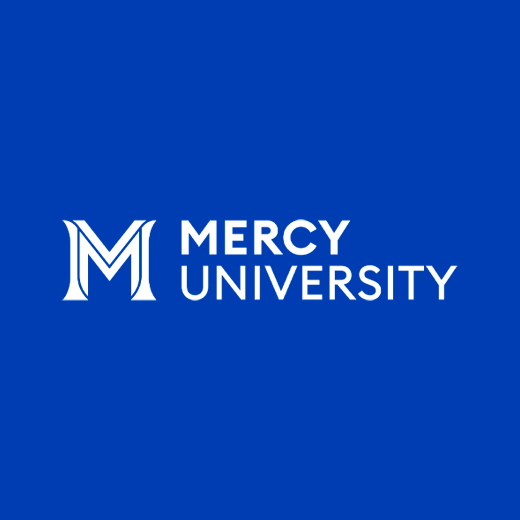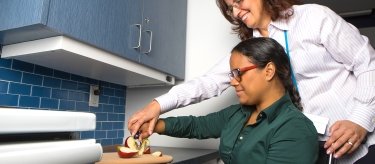
Occupational Therapy Assistant
- 68 Credits
- School of Health and Natural Sciences
- Westchester
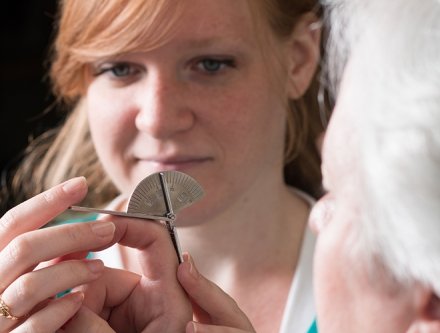
Occupational Therapy Assistant Overview
Help individuals restore their ability to do the things they need, want or are expected to do. Become an Occupational Therapy Assistant and join an exciting and rewarding field.
Occupational Therapy is the only profession that helps people across the lifespan to do the things they want and need to do through the therapeutic use of daily activities (occupations). Occupational therapy practitioners enable people of all ages to live life to its fullest by helping them promote health, and prevent—or live better with—injury, illness or disability.
This two-year Associate in Applied Science Degree is a full or part-time evening and weekend program designed to prepare its graduates to apply for certification and licensure as an occupational therapy assistant and to practice as an entry level generalist. The program teaches its students to develop skills to successfully work in a variety of health care settings including: hospitals, rehabilitation centers, schools, mental health facilities and community centers.
Occupational Therapy Assistants (COTA) work collaboratively with the Occupational Therapists (OTR) in providing high-quality, cost-effective services, promoting health and wellness by meeting society’s occupational needs (AOTA, 2012).
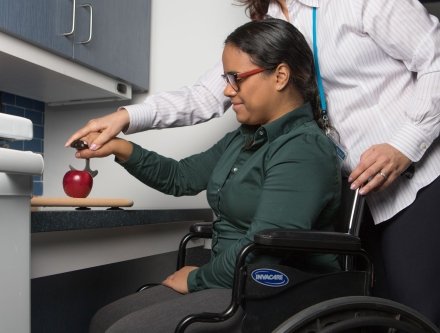
Career Opportunities
By choosing a career as an Occupational Therapy Assistant, you’ll have the opportunity to make a difference in people’s lives while entering a rewarding profession that has flexible and diverse job opportunities in areas such as:
- Acute Care Hospitals
- Rehab Hospitals
- Schools and Pre-Schools
- Early Intervention
- Nursing Homes
- Sub-Acute Care
- Adult Day Care
- Home Care
- Design and Accessibility Consulting and Home Modification
- Driver Rehabilitation and Training
- Ergonomics Consulting
- Health and Wellness Consulting
- Low Vision Services
- Private Practice Community Health Services
- Technology and Assistive Device Development and Consulting
Tour the 3rd floor clinical simulation labs
This space includes a Clinical Skills and Assessment Lab, movement lab and home health labs, frequently used by students and faculty in our nursing occupational therapy, occupational therapy assistant, and physical therapy programs.
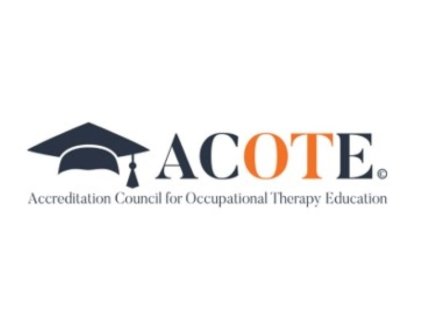
Program Accreditation
ACOTE’s Disclosure Statement regarding Probationary Accreditation Action:
The occupational therapy assistant program at Mercy University, Dobbs Ferry, New York, was placed on Probationary Accreditation effective April 6, 2025, because the area of noncompliance related to 2018 Standard A.6.4. Certification Exam Pass Rate is so serious that the program’s capability to provide acceptable education experience for the students is threatened.
The occupational therapy assistant program at Mercy University has been granted a status of Probation Accreditation-Inactive by the Accreditation Council for Occupational Therapy Education (ACOTE) of the American Occupational Therapy Association (AOTA), located at 6116 Executive Boulevard, Suite 200, North Bethesda, MD 20852-4929. ACOTE’s telephone number c/o AOTA is (301) 652-AOTA and its Web address is www.acoteonline.org. This status indicates that the program is not currently enrolling new students and does not plan to enroll new students in the future. While the program is on Accreditation-Inactive status, the graduates of the program will be eligible to sit for the national certification examination for the occupational therapy assistant administered by the National Board for Certification in Occupational Therapy (NBCOT). After successful completion of this exam, the individual will be a Certified Occupational Therapy Assistant (COTA). In addition, all states require licensure in order to practice; however, state licenses are usually based on the results of the NBCOT Certification Examination. Note that a felony conviction may affect a graduate’s ability to sit for the NBCOT certification examination or attain state licensure.
The Mercy University Occupational Therapy Assistant program is accredited by the Accreditation Council for Occupational Therapy Education (ACOTE) of the American Occupational Therapy Association (AOTA), located at located at 7501 Wisconsin Ave., Suite 510E, Bethesda, MD 20814-6519. ACOTE's phone number c/o AOTA is (301) 652-AOTA. The web address is WWW.ACOTEONLINE.ORG
Graduates of the Occupational Therapy Assistant program will be eligible to sit for the national certification examination for the occupational therapist administered by the National Board of Certification in Occupational Therapy (NBCOT). After successful completion of this exam, the individual will be Certified Occupational Therapy Assistant (COTA). In addition, most states require licensure in order to practice; however, state licenses are usually based on the results of the NBCOT Certification Examination. A felony conviction may affect a graduate's ability to sit for the NBCOT certification examination or attain state licensure.
For further information on these limitations, you can contact NBCOT at: National Board for Certification in Occupational Therapy, One Bank Street Suite 300 Gaithersburg, MD 20878 - (301) 990-7979. Applicants are also encouraged to contact the State Board of Occupational Therapy in the state they anticipate practicing to investigate any limitations.
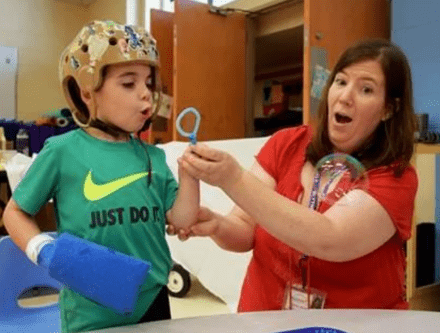
Pathway to a career in occupational therapy
Mercy has a pathway to support your career goals in occupational therapy. If after completing your occupational therapy assistant degree at Mercy University, you decide you'd like to change to the occupational therapy practitioner level, you can complete your bachelor's and master's degrees at Mercy while practicing as an OTA. The bachelor’s degree in Pre-Occupational Therapy concentration in the Health Science major prepares students for application to a graduate program in occupational therapy. To be licensed to practice the profession as an OT, individuals must obtain a master’s degree in OT, pass a national certification exam, and obtain a professional license. The courses in the HLSC Pre-OT major are typically required for application to most graduate OT programs.
HLSC Pre-OT students who achieve the requirements for acceptance into Mercy’s Graduate Occupational Therapy Program are guaranteed an interview for program admission. Up to 10 seats in the graduate program’s cohort are reserved for students completing Mercy’s the HLSC Pre-OT.
Clinical Education
Learn more about Mercy's Clinical Simulation Labs, Interprofessional Education and meet our Clinical Educators within our various departments.
Want More Info?
We'd like to hear from you! Get more information.
How to Apply to the Occupational Therapy A.A.S.
The OTA Program is a cohort program that only starts full-time students in the fall term. Part-time students may be eligible to start in a spring term.
Admission Criteria: – Admission to the OTA Program is a competitive multi-step process.
Freshman admission requires:
- Have an overall high school GPA of 85% or higher and a minimum of two years of high school English with an 85% (B) average or higher.
- Submit TWO references with their application. Preferably, one recommendation should be from an occupational therapy assistant, occupational therapist, work supervisor, or instructor of a high school or college course. Recommendations must be current (a maximum of six months).
Admission preference for applicants with high school GPAs of 85% or higher or previous college credit with a cumulative GPA of 3.0 or above. For their first academic year, students will only enroll in general education course requirements:
General Education Requirements:
BIOL 130 Human Anatomy & Physiology I 3 credits
BIOL 130A Human Anatomy & Physiology I Lab 1 credit
BIOL 131 Human Anatomy & Physiology II 3 credits
BIOL 131A Human Anatomy & Physiology II Lab 1 credit
ENGL 111 Written English & Literature Studies I 3 credits
ENGL 112 Written English & Literature Studies II 3 credits
MATH 116 College Algebra 3 credits
PSYN 101 Intro. to Psychology 3 credits
COMM 110 Oral Communications 3 credits
SOCL 101 Intro. to Sociology 3 credits
General Education Requirements…………………………………………………….26 credits
* Anatomy pre-requisite courses must have been taken within the last five years.
For students to remain in the program and progress to the occupational therapy assistant courses (OCTR), they must complete the first year with the following performance:
a) Minimal overall GPA of first year must be 2.75 or higher
b) A grade of C or better in all general education prerequisite courses
c) Any student who receives a grade of C- or below in any general education course will be required to repeat the course.
d) Anatomy pre-requisite courses must have been taken within the last five years.
Sophomore or Transfer Student Progression Criteria for OTA Major courses:
All students interested in progressing to fall full-time OTA Major courses MUST complete all General Education and Health Science Requirements before the start of the fall semester.
Health Science Requirements:
HLSC 205 Standard Safety Precautions for the Healthcare Professions 1 credit
HLSC 210 Overview of OT Practice 1 credit
HLSC 225 Intro. To Health Professions Literature & Scientific Writing 1 credit
Health Science Requirements………………………………………..………………3 credits
- Students who meet the program’s progression criteria will be invited to interview with representatives of the Occupational Therapy Assistant Program Progression Committee when a written essay is required.
- The OTA Program’s Progression Committee will review each applicant’s records. Progression into the occupational therapy assistant courses (OCTR), is based on a combination of GPA, interview, and written work. Candidates will be notified of their progression decision within two weeks from the date of the interview.
- The OTA Program offers rolling admissions for all applicants. Our priority application deadlines are March 15 for fall admissions and January 15 for spring admissions. All required documents must be received before a decision can be made.
- Admission decisions will be based on a ranking of composite numerical scores of an applicant’s GPA, interview, on-site essay and recommendations.
- Decision letters will be mailed to applicants on April 15 (Fall semester) and November 15 (Spring semester).
Deadlines for application, progression, and admission into the program are on a rolling basis. The start of classes for Fall 2025 is Wednesday, September 3rd, 2025. Call or email the program for further information.
Frequently Asked Questions
Classes are held three evenings a week from 6:15-9:05 pm and one evening (Tuesdays) from 5:00-9:00 pm. Additionally, there are three full weekend lab days (either scheduled for Saturday or Sunday) each semester.
To find out more about the Occupational Therapy Assistant program, call (914)674-7833 or e-mail the OTA program at otaprogram@mercy.edu.
Level I: Each of the major module application courses {OCTR260 - Childhood & Adolescents (6 credits) & OCTR214 - Adulthood & Maturity (6 credits)} have a 1 credit co-requisite course (OCTR 260A: OT Practice for the Assistant: Level I Fieldwork and OCTR 214A: OT Practice for the Assistant: Level I Fieldwork). These courses are designed to help students develop observation skills, integrate theory and intervention approaches into practice through simulation assignments and clinical practicum learning activities. The experience requires 21 hours of fieldwork time that may be taken on a once-a-week, part-time, or consecutive-day basis, depending on the site. Students will typically be placed in clinical sites. However, if public health regulations do not permit access to clinical sites, two additional virtual simulated activities will be added to supplement the minimum practice hour credit requirements for this course.
Level II: Once all the academic coursework is successfully completed for the program, students are required to complete a minimum of (2) eight to ten-week full-time fieldwork placements. Fieldwork II placements typically are scheduled Monday through Friday; but some may require weekend hours. Requirements are based on the operating hours of the assigned fieldwork site. Fieldwork II placements may be taken in consecutive semesters, or in some circumstances; students may have a semester between fieldwork experiences. The fieldwork experiences are organized by the Associate Director/Clinical Education Coordinator. Every attempt will be made to schedule fieldwork within one hour of travel time from your home. Both Fieldwork, Level II experiences must be completed within 18 months of the completion of academic coursework.
According to the National Board for Certification in Occupational Therapy (NBCOT), occupational therapists and occupational therapy assistants work collaboratively. The occupational therapist evaluates the client, plans therapeutic interventions and completes discharge documents. They also provide clinical supervision of the occupational therapy assistant. The occupational therapy assistant implements and documents the therapeutic interventions, and provides feedback to the occupational therapist on the client's progress during treatment.
Yes. Any person who graduates from an occupational therapy assistant program is required to pass the national certification exam in order to practice as occupational therapy assistant in New York State. The exam is given by the National Board for Certification in Occupational Therapy, Inc. (NBCOT). A limited permit in occupational therapy allows an individual who has completed an occupational therapy educational program to work, under supervision, between the completion of the program and the time that the licensing examination results are received. A graduate may apply for a limited permit through the New York State Office of Professions and it is valid for one year. It may be renewed once, at the discretion of the Department, for one additional year. To do so you must submit a new application, an explanation as to why you failed to become licensed within the year of the original permit and the appropriate fee.
The answer to this question depends on your personal situation. The program can be tailored to your personal needs. The OTA program can be taken on a full-time or part-time basis. The full-time program consists of two years. In the first year, the student completes all pre-requisite courses. During the second year, the student completes the OTA core courses. Upon completion of the courses, students complete (2) eight to ten week Level II Fieldwork placements. Level II Fieldwork placements must be completed within 18 months upon completion of coursework. The part-time program requires that all coursework (including Level II Fieldwork) must be completed within 5 years from initiation of coursework. Therefore, at the maximum, students have 3 ½ years to complete the core coursework and 18 months to complete Level II Fieldwork.
Program Details & Curriculum
General Education Requirements: 26 Credits
Health Science Requirements: 3 Credits
Occupational Therapy Requirements: 39 Credits
Total: 68 Credits
See full list of courses in the catalog.
The Occupational Therapy Assistant (OTA) Program is accredited by the Accreditation Council for Occupational Therapy Education (ACOTE) of the American Occupational Therapy Association (AOTA). ACOTE contact information is: ACOTE, c/o Accreditation Department, American Occupational Therapy Association (AOTA), 7501 Wisconsin Ave., Suite 510E, Bethesda, MD 20814-6519. . Phone number is (301) 652-2862. ACOTE's website is www.acoteonline.org and email is accred@aota.org. Graduates of the program are eligible to sit for the national certification examination of the occupational therapy assistant administered by the National Board of Certification in Occupational Therapy (NBCOT). After successful completion of this exam, the individual will be a Certified Occupational Therapy Assistant (COTA) in most states (including New York, New Jersey and Connecticut). Please refer to the "Practice Acts" of each state for the licensure requirement of a particular state.
NOTE: A felony conviction may affect a graduate's ability to sit for the NBCOT certification examination or attain state licensure.
NOTE: Students must be in good academic standing with a grade point average of 2.75 or higher in all major courses (all those courses that begin with OCTR) in order to advance to the full-time advanced clinical component of the program. All Occupational Therapy Assistant students are required to complete all Level II Fieldwork within 18 months following completion of academic coursework. All required coursework and fieldwork must be completed within five years from the initiation of coursework in the major concentration of occupational therapy.
Essential Performance Standards
The program has an "Essential Performance Standards" form that outlines the necessary affective skills and professional behaviors, communication/interpersonal skills, psychomotor skills, cognitive skills and self-care skills deemed essential for completion of the program and performance as a competent occupational therapy assistant. This form is reviewed at the time of the interview and is signed by all accepted students stating whether they are or are not capable of performing the skills and abilities that are listed. Information regarding the Office of Accessibility is discussed at the time of the interview.
Download a copy of the sequence map for:
ARCHIVE
- 2024 - 2025 A.A.S. Occupational Therapy Assistant
- 2023 - 2024 A.A.S. Occupational Therapy Assistant
- 2022 - 2023 A.A.S. Occupational Therapy Assistant
- 2021 - 2022 Occupational Therapy Assistant
- 2020 - 2021 Occupational Therapy Assistant
- 2019 - 2020 Occupational Therapy Assistant
- 2018 - 2019 Occupational Therapy Assistant
The Mercy University Occupational Therapy Assistant Program is organized around a developmental model, which examines the impact and effect of life challenges and occupations throughout the life span. Consistent with its philosophy, the program is designed to utilize the stages of human development. The developmental approach provides the students with a learning framework from which to develop their skills and abilities as an Occupational Therapy Assistant. The program is divided into four modules which are presented in an evening/weekend format. These modules focus on application of material in a variety of settings and with different populations in a developmental sequence so that the students learn to generalize the information and are able to use it to solve problems as they develop their own knowledge base.
The pediatric and adult major module courses require 21 hours of Level 1 Fieldwork for each course. These Level I Fieldwork experiences are designed to provide practical application of classroom work.
Upon completion of all course requirements, students complete two full-time Level II Fieldwork experiences for eight to ten weeks each. All Level II Fieldwork experiences must be successfully completed within 18 months of the academic coursework in order to satisfy degree requirements.
- Full or part-time program
- Program designed for working adult learners who are seeking a career change or who have a desire to enter the field of occupational therapy
- Classes held Monday - Thursday evenings, with once a month one-weekend day lab
- 75% of 2022 graduates secured positions as occupational therapy assistants within three months of graduation
ACOTE’s Disclosure Statement regarding Probationary Accreditation Action:
The occupational therapy assistant program at Mercy University, Dobbs Ferry, New York, was placed on Probationary Accreditation effective April 6, 2025, because the area of noncompliance related to 2018 Standard A.6.4. Certification Exam Pass Rate is so serious that the program’s capability to provide acceptable education experience for the students is threatened.
The program has been requested to submit a Progress Report to return the program to full compliance with the Standards within the mandated time period for correction.
The Mercy University Occupational Therapy Assistant program is accredited by the Accreditation Council for Occupational Therapy Education (ACOTE) of the American Occupational Therapy Association (AOTA), located at 7501 Wisconsin Ave., Suite 510E, Bethesda, MD 20814-6519. ACOTE's phone number c/o AOTA is (301) 652-AOTA.
Graduates of the Occupational Therapy Assistant program will be eligible to sit for the national certification examination for the occupational therapist administered by the National Board of Certification in Occupational Therapy (NBCOT). After successful completion of this exam, the individual will be Certified Occupational Therapy Assistant (COTA). In addition, most states require licensure in order to practice; however, state licenses are usually based on the results of the NBCOT Certification Examination. A felony conviction may affect a graduate's ability to sit for the NBCOT certification examination or attain state licensure.
For further information on these limitations, you can contact NBCOT at: National Board for Certification in Occupational Therapy, One Bank Street Suite 300 Gaithersburg, MD 20878 - (301) 990-7979. Applicants are also encouraged to contact the State Board of Occupational Therapy in the state they anticipate practicing to investigate any limitations.
Degree Completion
The total number of graduates from the Mercy Occupational Therapy Assistant Program during the 3-year-period of 2022 - 2024 was 79, with an overall graduation rate of 98%.
| Graduation Year | Students Entering/Graduating | Graduation Rate |
|---|---|---|
| 2022 | 24/23 | 96% |
| 2023 Feb. | 20/19 | 95% |
| 2023 Dec. | 10/10 | 100% |
| 2024 Dec. | 15/15 | 100% |
| TOTAL | 69/67 | 98% |
*Due to the University changing conferral date there was a double cohort for this graduation year.
Employment
Overall, employer surveys indicated that employers are satisfied with Mercy University occupational therapy assistant program graduates. 100% of employers indicated satisfaction with Mercy University occupational therapy assistant program graduates as entry-level generalist practitioners in terms of professional skills and behaviors, interpersonal communication and critical thinking.
75% of the students who graduated in 2022 and sought employment within the occupational therapy profession began working within three months of graduation. One hundred percent of employers stated they would hire a Mercy graduate in the future.
Students must attend mandatory meetings during OCTR 209 (1st Level II FW Experience) in order to discuss the expected NBCOT exam preparation and to practice answering practice exam questions. During OTCR 210 (2nd Level II FW Experience) students will participate in at least four sessions of exam prep activities and a mandatory 4 hour practice exam. The practice exam will be conducted by a faculty member at no cost. FW II grades will be released only if students attend both sessions. Student's attendance and feedback will be documented. Fieldwork grade/degree conferrals will not be released unless the student attends both sessions and any other exam preparatory events scheduled by the program.
Occupational Therapy Assistant Program Policies:
- Students are expected to attend all class sessions. No more than three absences are allowed without risk of failing a major course. Documentation may be requested by the Program Director for any absence/s. Absence on a weekend lab day counts as 3 class absences.
- Professional behavior is expected at all times in both the classroom and the clinical placement settings. The program Director and the faculty will address any demonstration of unprofessional behavior.
- Students must earn a grade of C or better in all general education Prerequisite courses.
- Any student who receives a grade of C- or below in any prerequisite general education course will be required to repeat the course.
- Students must receive a B or better in all OTA core courses. Students who receive less than a grade of B are required to repeat the course. OTA core courses may only be repeated once.
- Any student who receives a grade below B in two or more OTA core courses or if the student’s GPA, within the OTA major, fails below 2.75, the student may be dismissed from the program after a faculty review.
- Students must take all courses in the sequence according to the curriculum design of the program.
- If a student must repeat a course for any reason, they must wait to do so until the course is offered the following academic year. A grade of F in any occupational therapy assistant course may be grounds for dismissal. The faculty will discuss the situation and the Program Director will make the final decision regarding whether dismissal from the program is warranted. These situations will be reviewed on a case-by-case basis and would require appropriate documentation (medical, legal, etc.)
- Students who receive a rating of “Unsatisfactory” in any category in any Fieldwork I Experience will have their records reviewed by the Program Director and Academic Fieldwork Coordinator. The student will then be discussed with the faculty who will decide if the student may repeat the experience, or if the student will be permitted to repeat the entire major module course. In either case, the student will receive an educational plan that is designed by the faculty that addresses the student’s particular issues.
- Students may not take any Fieldwork II experiences until they have successfully completed all Fieldwork I experiences.
- Should a student fail a Fieldwork II experience, the faculty will discuss the reasons for the failure and a decision will be made as to whether the student will be given an opportunity to repeat the fieldwork experience. Reasons for the decision will be shared with the student during a face-to-face or telephone meeting with the Program Director and the Academic Fieldwork Coordinator. An “Educational Contract” for the repeated FW II assignment will be created by the Academic Fieldwork Coordinator and signed by the student and also by the Program Director prior to the student repeating the failed experience. Failure to uphold the specifications of the educational contract will result in failure of the repeated fieldwork placement and an automatic dismissal from the program. The student must register and pay tuition for any repeated Fieldwork course (OCTR 209 or OCTR 210).
- Failure in any two Fieldwork experiences, Fieldwork I or II, may result in dismissal from the program.
- During clinical fieldwork experiences, student work schedules may not interfere with the hours they spend at the fieldwork site.
- National boards exam preparation: Students must attend all scheduled mandatory exam preparatory activities and class meetings during OCTR 209 Occupational Therapy Practice for the Assistant: Advanced Clinical Education I, OCTR 210 Occupational Therapy Practice for the Assistant: Advanced Clinical Education II and OCTR 214 Occupational Therapy Practice for the Assistant: Adulthood and Maturity. Students will review and practice certification exam style questions in preparation for their licensing exam with the National Board for Certification in Occupational Therapy, Inc. (NBCOT). FW Level II grades will be released only if students attend both mandatory sessions and any other preparatory events that are scheduled by the program.
The Clinical Simulation and lab hours are scheduled in alignment with courses. Students are informed at the start of each semester of these hours.
| Item | 2024 Fall Semester | 2025 Spring Semester | 2025 Summer Semester* FW II A | 2025 Fall Semester* FWII B | Total Cost |
|---|---|---|---|---|---|
| Tuition - Full-Time | $10,990 | $10,990 | $2,871 | $3,828 | $28,679 |
| Mercy Student Fee | $450 | $450 | $225 | $225 | $1,350 |
| OTA Course Fee | $600 | $500 | $275 | $525 | $1,900 |
| Books and Supplies | $320 | $246 | $47 | $0 | $613 |
| Loan Fees | $40 | $40 | $40 | $40 | $160 |
| Distance Education Fees | $0 | $0 | $0 | $0 | $0 |
| Total * | $12,400 | $12,226 | $3,458 | $4,618 | $32,702 |
*Illustration based on a 3% increase annually, however tuition and fees are subject to change.
According to FAFSA (Free Application for Federal Student Aid), the cost of attendance is defined as the amount of attending the program includes tuition and fees, books, supplies, transportation, loan fees, as well as fees associated with distance education.
Tuition and Fee information for the Undergraduate Mercy specific courses is located here: Mercy University - OTA Program Tuition and Fees
The Occupational Therapy Assistant Program is committed to meeting its mission as it relates to serving our students, potential students, staff, faculty, adjunct faculty, clinical faculty and the public consumer of physical therapy. To that end, we are committed to ensuring that exceptional complaints for which there is no established University, School or program policy or procedure are considered and resolved in a timely, fair, consistent and equitable manner. Additional information may be found in the University undergraduate catalog.
Procedure: Complaints should be addressed to the Program Director through the online form. If the program director is the subject of the complaint, the complaint should be addressed to the Dean, School of Health and Natural Science.
The Occupational Therapy Assistant program leads to a professional license administered by each state. Applicants and potential students should review information available on the University's NC-SARA page. We advise you to contact your state licensing board or appropriate licensing entity to determine whether the program meets requirements for Professional Licensure in the state where you are located or the state in which you intend to pursue licensure. Please contact the OTA Program Director if you have further questions.
Contact the Occupational Therapy Assistant Program
Full-Time Faculty
Jennifer Martins Alves Fernandes
- Main Hall – Rm. 270
- jfernandes5@mercy.edu
- (914) 674-7831
Part-Time Faculty
Cristina Dumitrescu
Neil Harvison
- Main Hall – Rm 272
- nharvison@mercy.edu
- (914) 674-7833





